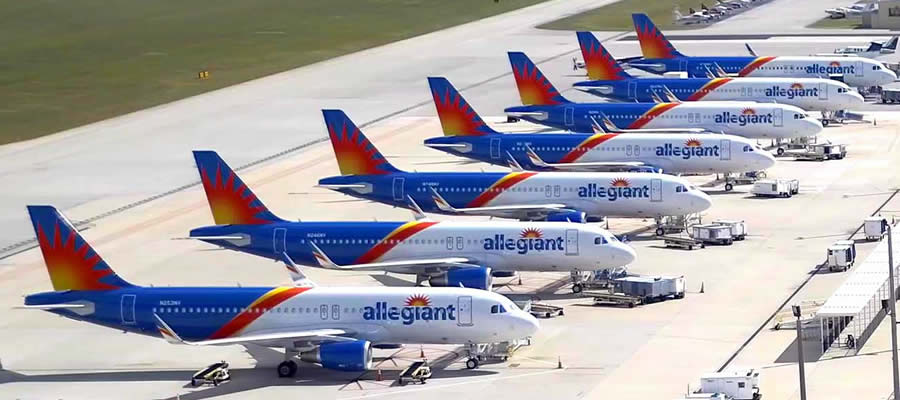US carrier Allegiant Air and Mexico’s Viva Aerobus have renewed calls for the US Department of Transportation (DOT) to approve a joint request first submitted in December 2021, that would allow the two carriers to form metal-neutral joint venture.
In an application to the DOT, both Allegiant and Viva are requesting that the agency immediately restarts and approves their long-delayed request for antitrust immunity, arguing that the nearly four-year delay is harming US consumers and limiting competition in the US-Mexico aviation market.
The proposed alliance would see the two low-cost airlines coordinate pricing and schedules across US-Mexico routes, opening up more than “90 services from underserved US cities” including South Bend, Appleton, and Stockton, according to the airlines.
The DOT suspended its review into the alliance in July 2023, citing actions by the Mexican government at Mexico City’s Benito Juárez International Airport, that raised concerns over fair access under the US-Mexico air transport agreement.
Both Allegiant and Viva claim in a filing to the DOT that this justification “no longer applies”, noting that services to the Mexican capitals two airports have normalised and that new flights connecting the US and Mexico continue to be added, in particular by US legacy carriers.
The airlines have argued that the new airline alliance will allow for fares to be reduced by up to 46%, in comparison to what is currently being offered by airlines such as American, Delta and United.
Allegiant and Viva state that this delay in the DOT approving this alliance has cost travellers an additional “$235 million” in higher fares.
“The result would be 4.9 million additional Americans who would enjoy international travel, but who are currently priced out of the market entirely or are unwilling to surrender to oligopolistic pricing,” the airlines stated.
The airlines claim that despite the previous Biden administration delaying their initial application, the parties have been able to twice secure antitrust clearance and implementation extensions from the Mexican antitrust authority, Comisión Federal de Competencia Económica (COFECE).
“The second extension was necessary because the first clearance and implementation extension were only valid for six months each,” the filing stated. “Because of the indecision by the DOT, a second clearance and implementation extension needed to be obtained and will now expire on September 10, 2025.”
The airlines noted that further delay by the DOT will mean that the parties would need to seek an “unprecedented third clearance”, which they states will result in miring the joint venture in more delay and red tape.
Airline Economics has approached Allegiant, Viva and the DOT for comment.

